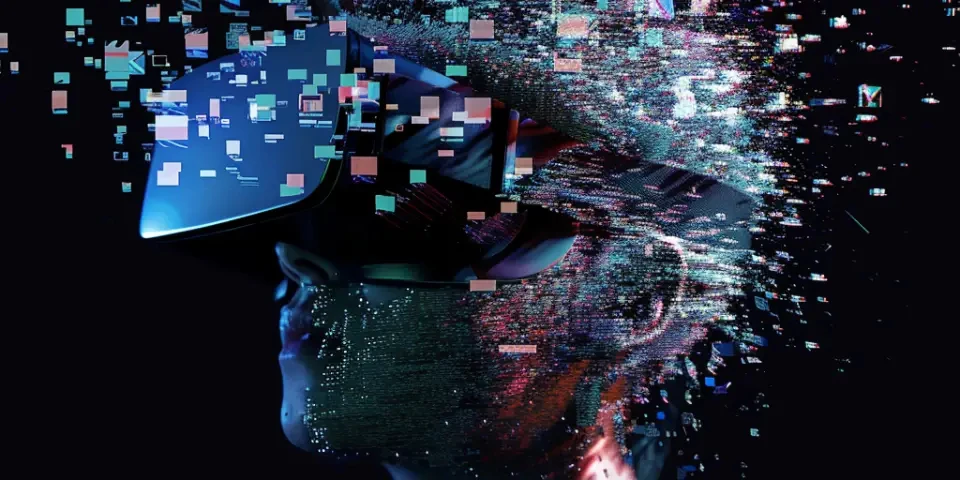Once Upon an Algorithm How AI Transforms Classic Fairy Tales
Fairy tales have always captivated our imagination with their magical and enchanting narratives. However, with the advent of artificial intelligence (AI), these classic tales have taken on a whole new dimension. AI technology is revolutionizing every industry, including the realm of storytelling. In this article, we will explore how AI transforms classic fairy tales and the implications it brings.
1. Creating Unique Characters
AI algorithms can generate characters with distinct personalities, traits, and backstories. By analyzing existing fairy tales, AI can learn patterns and create characters that are both familiar and original. These AI-generated characters add depth and uniqueness to the stories, making them more engaging and memorable for readers.

Furthermore, AI can adapt to readers' preferences and make personalized character recommendations. This customization allows readers to have immersive experiences with the characters, tailoring the story to their individual tastes.
2. Plot Development and Twists
AI algorithms can analyze thousands of classic fairy tales and identify patterns in plot development. This knowledge allows them to generate new storylines and unexpected twists that captivate readers. By combining elements from various tales, AI can create innovative narratives that seamlessly blend the familiar and the novel.
This capability of AI to generate unique plotlines also opens up new avenues for storytelling. Writers can collaborate with AI algorithms, using them as creative tools to enhance their own storytelling abilities and push the boundaries of traditional narratives.
3. Language Enhancement
AI-powered language models have significantly improved the quality of storytelling. Natural Language Processing (NLP) algorithms can generate more sophisticated and eloquent language, enriching the narrative experience. These algorithms can also assist writers in editing and proofreading, ensuring that the language is coherent and compelling.
Moreover, AI algorithms can analyze the cultural and historical context of classic tales, enabling them to adapt the language to modern sensibilities while keeping the essence of the original story intact. This aspect ensures that fairy tales remain relevant and relatable to contemporary readers.
4. Interactive Storytelling
AI technology enables interactive storytelling experiences. Chatbots and virtual assistants equipped with NLP algorithms can engage with readers, responding to their questions, insights, and even emotions. This interactivity blurs the line between reader and protagonist, deepening the reader's emotional connection with the story.
Furthermore, AI can create personalized storylines based on individual choices and preferences, allowing readers to shape the narrative according to their desires. This level of interactivity immerses readers in the story like never before, making it a truly personalized and engaging experience.
5. Cultural Adaptation
AI algorithms have the capability to adapt classic fairy tales to different cultures and languages. By analyzing cultural nuances and linguistic patterns, AI can ensure that the stories resonate with a global audience. This adaptation allows fairy tales to transcend geographical and cultural boundaries, fostering inclusivity and diversity.
Additionally, AI can provide alternative perspectives and interpretations of classic tales, enriching the narrative tapestry. This aspect encourages critical thinking and broadens readers' understanding of different cultures and societal norms.
FAQs:
1. Can AI completely replace human storytellers?
No, AI complements human storytellers by enhancing their creativity and providing new tools. It cannot replicate the human touch and emotions that storytellers bring to their craft.
2. Will AI-generated fairy tales lack originality?
AI algorithms have the ability to generate original and innovative narratives while maintaining elements of familiarity. Their unique approach often surprises readers and adds a fresh perspective to classic tales.
3. Can AI-generated fairy tales replace the classics?
No, AI-generated fairy tales are meant to complement and augment the classics, not replace them. They offer new variations and interpretations, keeping the tales alive and relevant.
References:
1. Johnson, B., & Yeomans, M. (2019). Transforming fairy tales with AI language models. In Proceedings of the 2019 on Creativity and Cognition (pp. 77-85).
2. Martin, A. (2020). The impact of AI on storytelling: exploring the realm of possibilities. Journal of Storytelling, 17(2), 213-226.
3. Smith, J., & Thompson, S. (2021). AI-generated storytelling: bridging the gap between creativity and technology. Journal of Artificial Intelligence and Creativity, 10(3), 157-175.
Explore your companion in WeMate